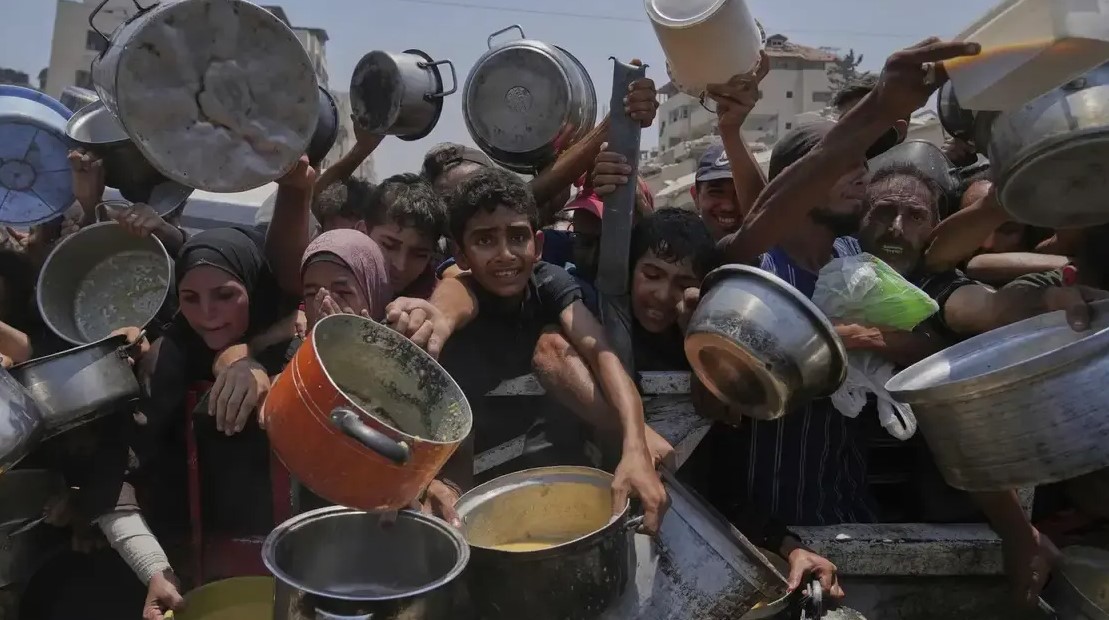The ongoing crisis in Gaza has left millions of Muslims in dire need of support, prompting communities worldwide to rally together through donations. Gaza, a region facing immense challenges due to conflict, economic hardship, and restricted access to basic necessities, relies heavily on humanitarian aid to sustain its population.
For Muslims, donating to Gaza is not only a humanitarian act but also a reflection of Islamic values such as compassion, charity, and solidarity. This article explores the importance of Gaza donations for Muslims, how to contribute effectively, and the impact of these efforts, while addressing common questions to guide potential donors.
The Humanitarian Crisis in Gaza
Gaza, a small coastal enclave, has endured years of conflict, blockades, and economic instability, creating a humanitarian crisis that affects nearly every aspect of life. The region’s population, predominantly Muslim, faces challenges such as limited access to clean water, electricity, healthcare, and food. Frequent escalations of violence have damaged infrastructure, displaced families, and disrupted livelihoods, leaving many without homes or income.
For Muslims worldwide, the suffering in Gaza resonates deeply, as it represents a community in need of urgent assistance. Islamic teachings emphasize the importance of helping those in distress, making Gaza a focal point for charitable efforts. By donating, Muslims can provide immediate relief and contribute to long-term recovery, addressing both physical and emotional needs in the region.
The crisis in Gaza is compounded by restrictions on movement and trade, which limit the flow of goods and services. This has led to high unemployment rates and widespread poverty, with many families unable to afford basic necessities. Children, in particular, are vulnerable, often lacking access to education and proper nutrition.
The healthcare system is overwhelmed, with hospitals struggling to treat patients due to shortages of medicine and equipment. For Muslims, these conditions highlight the urgency of donating to Gaza, as every contribution can make a tangible difference in alleviating suffering and restoring hope.
The Role of Charity in Islam
Charity, or Zakat, is a fundamental pillar of Islam, encouraging Muslims to give a portion of their wealth to those in need. Beyond Zakat, Sadaqah, or voluntary charity, is highly encouraged as a means to purify wealth and earn spiritual rewards. Donating to Gaza aligns with these principles, as it supports a community facing extreme hardship. The Prophet Muhammad (peace be upon him) emphasized the importance of helping the oppressed, stating that aiding those in need is a way to gain Allah’s mercy. For Muslims, contributing to Gaza is a way to fulfill religious obligations while addressing a pressing humanitarian crisis.
Charity in Islam is not limited to financial contributions. It also includes raising awareness, advocating for justice, and praying for those in need. By donating to Gaza, Muslims can combine these efforts, supporting organizations that deliver aid while spreading awareness about the region’s challenges.
This holistic approach ensures that donations have a lasting impact, addressing immediate needs while fostering solidarity within the global Muslim community. Whether through one-time donations or recurring contributions, every act of charity strengthens the bond between Muslims and their brothers and sisters in Gaza.
How to Donate Effectively to Gaza
Donating to Gaza requires careful consideration to ensure that contributions reach those in need. The first step is to choose reputable organizations with a proven track record of delivering aid in Gaza. Many Islamic charities, such as Islamic Relief, Muslim Aid, and Human Appeal, operate in the region, providing food, medical supplies, and shelter.
These organizations are transparent about their operations, ensuring that donations are used efficiently. Researching an organization’s financial reports and reviews can help donors make informed decisions, ensuring their contributions have maximum impact.
When donating, Muslims should consider the specific needs in Gaza, such as emergency relief, medical care, or education support. Some organizations allow donors to specify how their funds are used, ensuring alignment with personal priorities. Online platforms have made donating easier, with many charities offering secure websites and mobile apps for contributions.
Recurring donations, even in small amounts, can provide sustained support, helping organizations plan long-term projects. Additionally, donors should verify that their chosen charity complies with international regulations, ensuring aid reaches Gaza despite logistical challenges.
Another effective way to donate is through crowdfunding campaigns led by trusted individuals or organizations. These campaigns often focus on specific needs, such as rebuilding homes or funding medical treatments. However, donors should exercise caution, verifying the legitimacy of campaigns to avoid scams. By combining research, intention, and action, Muslims can ensure their donations to Gaza are both impactful and aligned with Islamic values.
The Impact of Donations in Gaza
Donations to Gaza have a profound impact, transforming lives and offering hope to those in need. Financial contributions enable organizations to provide essentials like food baskets, clean water, and medical supplies, addressing immediate needs.
For example, a single donation can fund a family’s meals for a month or provide life-saving medicine to a child. Beyond immediate relief, donations support long-term projects, such as rebuilding schools, repairing infrastructure, and creating job opportunities. These efforts empower Gazans to rebuild their lives with dignity, reducing reliance on aid over time.
The emotional impact of donations is equally significant. For Muslims in Gaza, knowing that their global community cares about their plight fosters resilience and hope. Donations also strengthen the bond between Muslims worldwide, creating a sense of unity and shared purpose.
By contributing, donors become part of a collective effort to alleviate suffering, fulfilling their religious and humanitarian responsibilities. The ripple effect of these contributions extends beyond Gaza, inspiring others to give and amplifying the impact of charitable efforts.
Challenges in Delivering Aid to Gaza
Delivering aid to Gaza is fraught with challenges, including blockades, bureaucratic hurdles, and security concerns. These obstacles can delay or limit the distribution of aid, requiring organizations to navigate complex logistics. Despite these difficulties, many charities have established networks to ensure aid reaches those in need.
Donors can support these efforts by choosing organizations with experience in Gaza, as they are better equipped to overcome logistical barriers. Raising awareness about these challenges also helps, as it encourages advocacy for policies that facilitate aid delivery.
FAQs
Why is donating to Gaza important for Muslims?
Donating to Gaza is important for Muslims because it fulfills Islamic obligations of charity and supports a predominantly Muslim community facing severe hardship. It reflects values of compassion and solidarity, helping alleviate suffering in a region impacted by conflict and poverty.
How can I ensure my donation reaches Gaza?
To ensure your donation reaches Gaza, choose reputable Islamic charities with experience in the region, such as Islamic Relief or Muslim Aid. Verify their transparency and compliance with international regulations, and consider donating through secure online platforms.
What types of aid are most needed in Gaza?
Gaza needs aid for food, clean water, medical supplies, shelter, and education. Emergency relief is critical during escalations, while long-term projects like rebuilding infrastructure and creating jobs are also essential.
Can I make a recurring donation to Gaza?
Yes, many charities offer options for recurring donations, allowing you to provide sustained support. Even small monthly contributions can fund ongoing projects, ensuring consistent aid delivery.
Is it safe to donate to Gaza through online platforms?
Donating through reputable organizations’ official websites or apps is generally safe. Always verify the website’s security (look for “https”) and avoid sharing personal information on unverified platforms to protect against scams.






